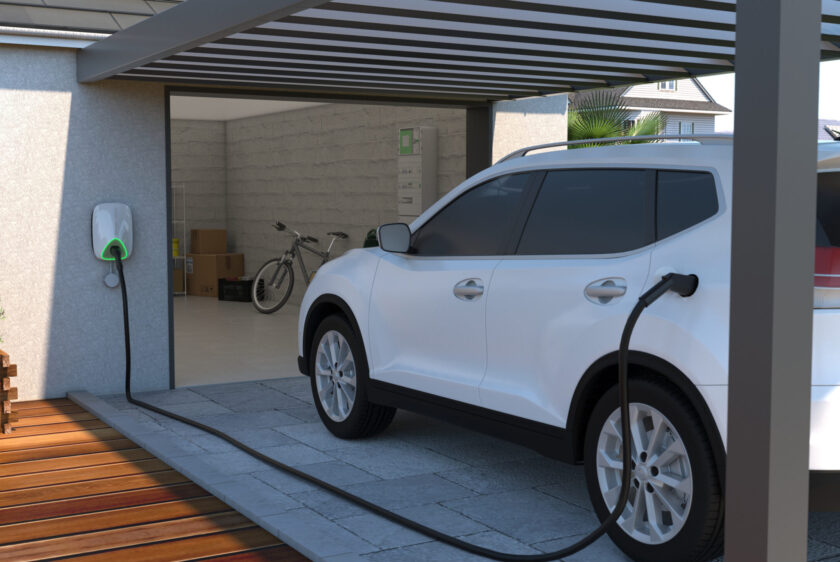eMobility is evolving—and for the better. Even while there are still obstacles to the electrification of the transport industry, there are many more opportunities worth fighting for. This is especially clear in urban areas where pollution, traffic, and safety are currently significant concerns. If things stay as they are, mobility issues will worsen as population and Economic growth lead to more people owning cars and driving more miles. As a result, the mobility sector is launching a dizzying array of technologies suited explicitly for urban roadways, including mobility-as-a-service, cutting-edge parking and traffic management systems, freight-sharing options, and of course, electric vehicles.

eMobility is a growing trend
The image of an electric vehicle, or electric vehicle, EV, is probably the first thing that comes to mind when discussing eMobility. The rise of electric cars has been talked about in recent years. Euromonitor reported that the registration of EVs has grown more than triple between the years 2017 to 2021, from 3.7 million units to 11.8 million units. A new study by Goldman Sachs predicts that EVs will make up about half of recent car sales worldwide by 2035. Meanwhile, many governments are introducing new measures or offering incentives to make EVs more attractive to consumers as part of the collective efforts to accelerate sustainability.
eMobility is undoubtedly a fast-growing trend that will keep on expanding. The primary reason for its increasing popularity is that electric vehicles allow us to transition away from using CO2-emitting fossil fuels. Many countries worldwide are looking to encourage their population to invest in EVs. For example, Saudi Arabia is looking to take the rise of eMobility to the next level.
eMobility in Saudi Arabia
In 2021, Saudi Arabia launched the Saudi Green Initiative (SGI), which aims to combat climate change for a sustainable future in The Middle East. The initiative also coincides with the Middle East Green Initiative, which goes hand-in-hand as catalyst projects for a greener tomorrow. As part of the plan, EVs are also expected to contribute to the carbon-emissions-reduction efforts, with a target of 278 million tonnes per annum by 2030. This will mark 50% of the country’s power generation emissions in that period and drive Saudi Arabia towards a more sustainable energy mix.
Driven by the SGI and the pledge to achieve net zero by 2060, eMobility solutions have become a priority. In May 2022, Saudi Arabia’s Ministry of Industry and Mineral Resources announced allocating $6 billion AED to steel mining and EV battery production projects, including building an EV metals plant to attract future investment. Moreover, it has invested in establishing its own EV manufacturer and aims to become an EV manufacturing hub with 500,000 cars by 2030. These showcase Saudi’s commitment to becoming a more competitive economy in the EV era and, even more, a sustainable and connected mobility economy.
Addressing EV charging
More EVs mean a higher demand of EV charging stations in residential, commercial, and industrial facilities, and in transit. Saudi Arabia is responding to the global and regional surge in demand for EV charging to offer a more sustainable lifestyle for its people. As part of the Riyadh Sustainability Strategy unveiled in 2021, the Saudi government is working to ensure that 30% of all vehicles in Riyadh will be powered entirely by electricity by 2030.
In alignment with their vision for EV infrastructure development, Schneider Electric outlines efficient, resilient and sustainable end-to-end connected solutions to charge EVs across homes, workplaces, and public areas. Our EV charging offer is easy to install and maintain, while serving as a load management system and platform to optimize energy consumption and to manage daily operation. It certainly provides a convenient experience for EV drivers living in places like Saudi Arabia. Such solutions encourage a shift towards EV charging from the more conventional methods across applications, including residential, buildings, and fleets, to navigate the nation to achieve its sustainability goals.
Embracing eMobility
Electric vehicles are on the rise, and we are on the right track regarding decarbonizing the transport sector. The pace of the industry’s evolution is unmatched. It also spans industry boundaries, including players in the energy, infrastructure, mobility, and automotive sectors. Despite being a significant challenge, it offers established businesses and newcomers a great chance to play a crucial part in developing new, multi-billion-dollar industries and jobs. Integrating sustainability with economic viability will require cutting-edge technologies and well-planned mobility transformations.
Saudi Arabia is putting itself forward as a clear example of an eMobility role model based on its diverse mobility landscape, focusing on sustainability, and established technological leadership. At Schneider Electric, we look forward to continuing to build a strong relationship with Saudi Arabia and helping them achieve their EV and sustainability goals.
Know more how Schneider Electric is transforming Home of the Future.



